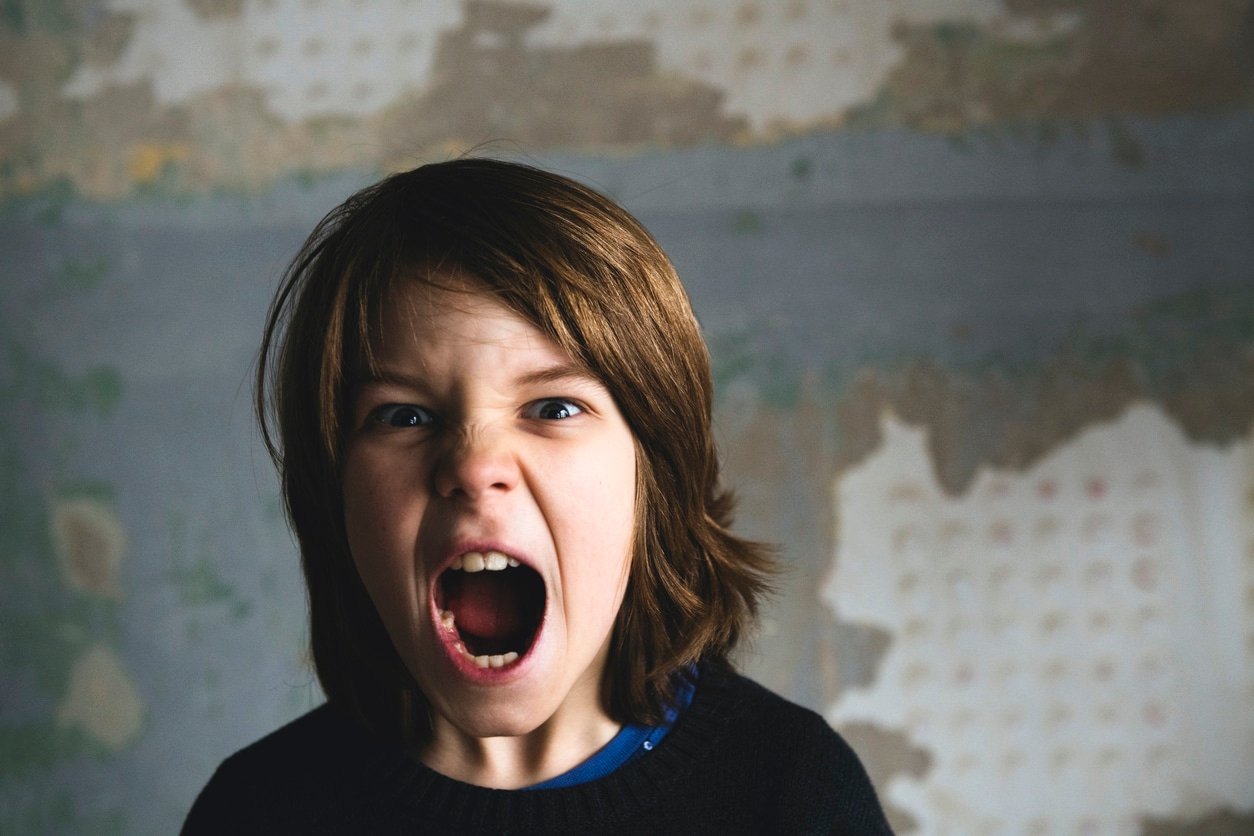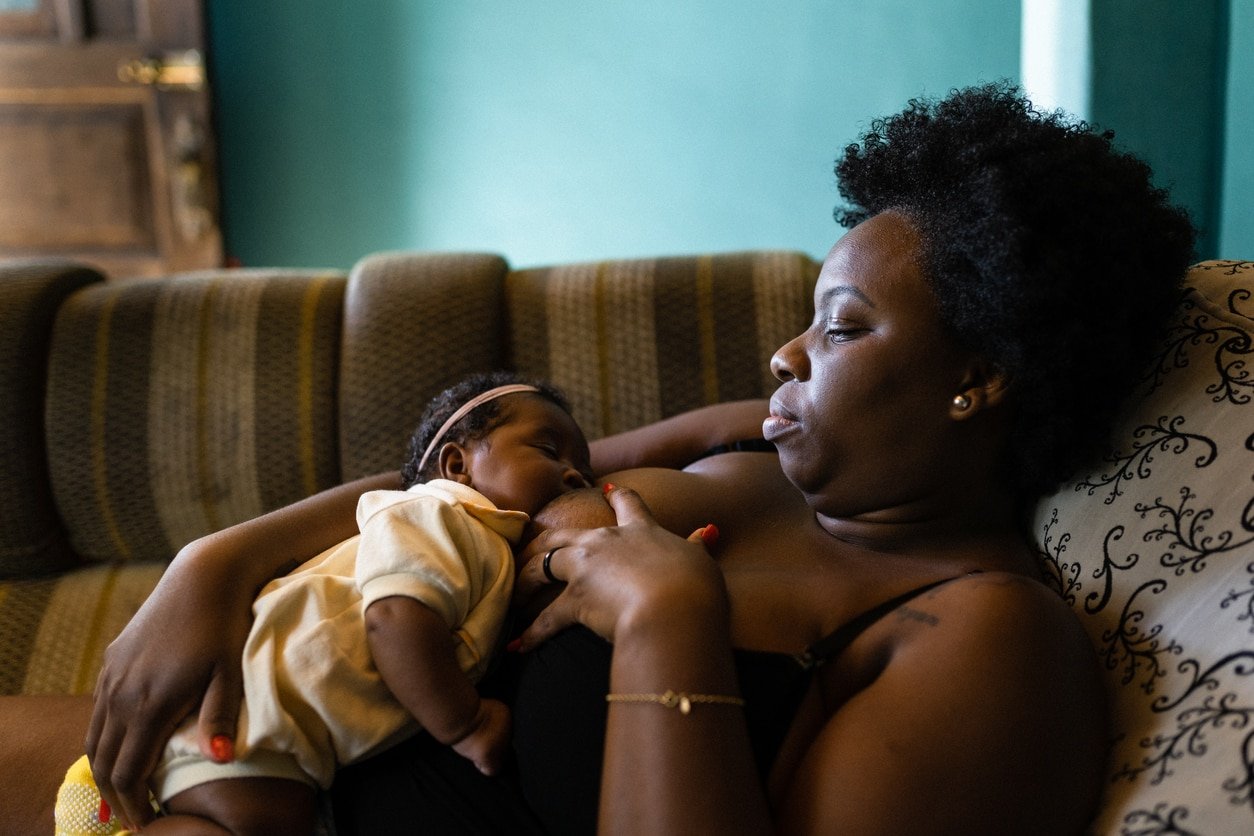Anger and aggression are two different things, and it’s essential to understand that your child’s aggression is not their anger. Anger is a normal emotion, whereas aggression is the behavior or action taken that is destructive or violent.
Aggression doesn’t have to be physical; aggression can appear in many ways; tantrums, kicking, biting, hitting, shouting, inappropriate language (name calling, swearing, threats), verbal attacks, destruction of property, self-harm, or self-injurious behavior as well as attempts to control others through threats or actual violence. Let’s explore children’s aggression to understand what may cause them to rage against us or others.
Why Do Children Get So Angry?
Sometimes our kids lash out because they are frustrated, challenged, or haven’t learned how to control their impulses or manage conflict in socially appropriate ways. Some children experience additional challenges or conditions that impact their ability to regulate themselves, including adverse life events, attention challenges, hyperactivity, autism, mental health, and learning or developmental disorders.1,2
What Causes Them to Have Aggression?
Humans aren’t born with the ability to regulate their emotions. We can respond in hostile and aggressive ways until we learn strategies to manage our feelings and triggers in healthy and adaptive ways. A hostile or aggressive response tends to be shaped by environmental conditions, such as pressure, threats, etc.2,3 There can also be other factors, such as genetics, learned behaviors, media messages, cultural factors, and ideologies of families and communities outside the home, such as teachers and peers.
Please don’t take this to mean that it is your fault if your child is acting out or that there is nothing that can be done about it. You can learn to understand your child’s aggression and manage it more effectively. Regardless of diagnosis, other factors, or risks in a child’s life, you can positively influence and impact your child’s capacity to develop strategies and skills to change their reactions more healthily.
Ways to Calm Aggression
Here are six strategies you can try to help calm your child’s aggression:4,5
1. Keep Your Cool
Meeting your child’s aggression with your aggression or frustration will likely inflame things. Unless your child or someone else is in danger or there are safety concerns, take a deep breath or your own time out. You can respond more rationally to the situation when you feel calm and collected. Your child will also be regulated by your emotional response (or lack thereof) and will see you modeling how to deal with challenges which helps them see other ways besides responding to situations with aggression.
2. Develop Their Emotional Intelligence and Coping Strategies
Kids don’t process emotions in the same way grown-ups do. If they are very young, they likely don’t understand the uncomfortable sensations in their bodies yet. So, sometimes misbehavior and impulsivity indicate a lack of competence but not maliciousness. By teaching them to understand which emotions are which, they are better equipped to use this information to help them cope—for example, understanding how feelings are managed in different ways, such as sadness and anger. Also, simply understanding their feelings and why they feel that way can reduce internal tension and confusion. This, in turn, reduces frustration and your child’s aggression.
3. Model Expected Behavior
Demonstrate expected behavior to your child by how you act and react to things. Let them see you coping with big feelings, frustration, and setbacks. Share how you manage and calm yourself down. Our little ones are always watching, so set an example for them to follow.
4. Tune Into Your Child’s Pace and Capacity
When we have realistic expectations of our kids, there is less pressure and less chance that their self-esteem or self-efficacy will be damaged. This helps our kids to feel calmer and less overwhelmed. That can reduce aggression because they aren’t as triggered or distressed. It also helps to understand your child’s diagnosis and emotional capacity. It will help you see where there might be gaps or areas in which they need additional support to cope.
5. Focus on Retaining a Positive Relationship
If your child is aggressive, you might feel like you are constantly criticizing or doling out consequences. That might make you feel like there are no positive interactions. This won’t benefit either of you because getting stuck in these patterns undermines the quality of your relationship in the long term. It also means threats and punishments are less effective in developing your child’s social and emotional skills. A solid and positive relationship with a parent can result in better and more desirable social skills, which include being able to manage their emotions.
6. Don’t Give in to Aggressive Behavior
This will only reinforce that acting aggressively will result in getting what they want. Or they might see this as an effective communication tool. Have obvious boundaries, expectations, and consequences, and stick to them.
Managing aggressive behavior in children can be stressful, not to mention demoralizing. It can impact your mental health, well-being, resilience, and sense of competence and confidence as a parent. So don’t forget to look after yourself. And tap out or ask for support if you need it. Remember to seek help from a professional if you are concerned about behaviors even after trying these strategies. You don’t have to do this alone!

 PARENTING TIPS
PARENTING TIPS PREGNANCY
PREGNANCY BABY CARE
BABY CARE TODDLERS
TODDLERS TEENS
TEENS HEALTH CARE
HEALTH CARE ACTIVITIES & CRAFTS
ACTIVITIES & CRAFTS


